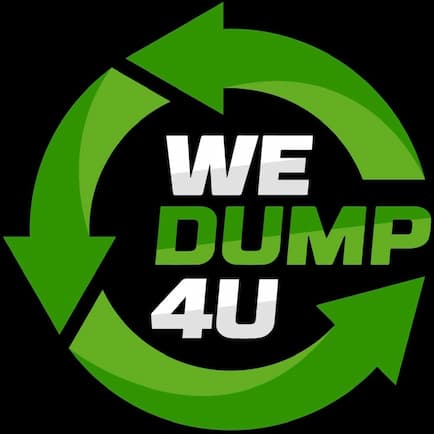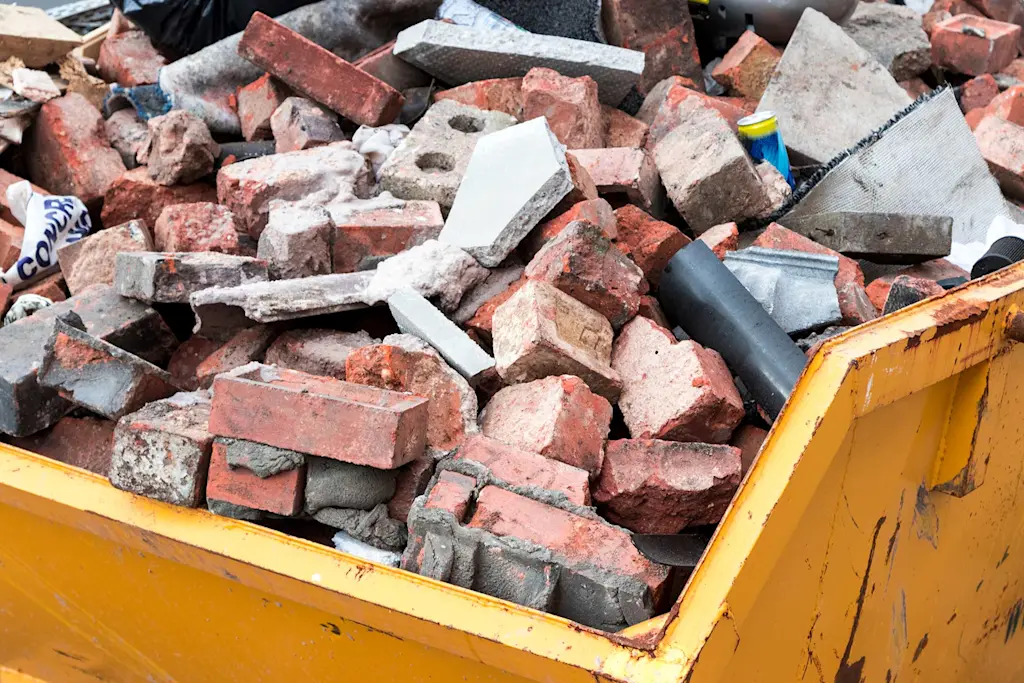Undertaking a home renovation or garden makeover can be incredibly rewarding, but it also generates a considerable amount of waste. Whether you’re replacing your kitchen, building an extension, or re-landscaping your garden, you’ll need to deal with leftover bricks, timber, plasterboard, rubble, and packaging. In the UK, safe and legal construction waste disposal is not just a recommendation—it’s a regulatory requirement.
This guide is tailored for UK homeowners and covers everything you need to know about responsibly and legally handling construction waste from your home improvement or renovation projects. This includes your legal responsibilities to disposal options, sustainability tips, and common pitfalls to avoid.
What Is Considered Construction Waste?
Home renovation construction waste refers to the debris and materials left behind after a construction, renovation, or home improvement project. Common types include:
- Bricks, concrete, and rubble
- Wood and timber
- Plasterboard
- Tiles and ceramics
- Glass
- Metals
- Soil and hardcore
- Paint cans, adhesives, and sealants
Understanding what materials fall under construction waste will help you categorise your disposal options correctly.
Why Responsible Construction Waste Disposal Matters
1. Environmental Protection
Improper disposal of construction waste can result in pollution, contamination of soil and water, and harm to wildlife. By choosing eco-friendly methods for removing construction waste, you reduce your environmental footprint.
2. Legal Compliance
In the UK, construction waste is classed as controlled waste, which means homeowners and contractors must ensure it is handled by a registered waste carrier and disposed of at a licensed facility.
3. Health and Safety
Leaving rubble, nails, sharp tiles or broken glass around your property can pose a hazard. Proper clearance minimises risks to your family, neighbours, and anyone working on your project.
Your Legal Responsibilities as a Homeowner
You might assume your builder or contractor handles waste, but UK law also places duties on the homeowner:
- Duty of Care: You must ensure your waste is transferred to a licensed waste carrier. This can be checked via the Environment Agency’s public register.
- Waste Transfer Notes: For non-hazardous waste, obtain a waste transfer note or invoice from the carrier detailing what was collected and where it was taken.
- Hazardous Waste: Items like asbestos, lead-based paints, and certain solvents are classed as hazardous and require specialist disposal.
Failure to comply with UK waste regulations can lead to fines or legal action, even if a third party handles your waste improperly.
Construction Waste Disposal Options in the UK
1. Skip Hire
One of the most common solutions for construction waste disposal, hiring a skip is ideal for bulky, heavy, and mixed materials.
Pros:
- Convenient On-Site Collection: Skips can be delivered and picked up at your home, eliminating repeated trips to the tip.
- Range of Sizes Available: From mini skips for small jobs to large builder’s skips, there is an option for every scale of project.
- Time-Saving for Ongoing Projects: Keeps your site tidy during longer projects by providing a consistent place to dispose of waste.
Cons:
- Permit Requirements: If placed on a public road, you’ll need a skip permit from your local council, which adds time and cost.
- Restrictions on Waste Types: Certain materials (e.g. plasterboard, hazardous waste) must be kept separate or are not permitted.
- Risk of Overfilling: Exceeding the fill line may result in additional fees or refusal of collection.
2. Grab Lorry Hire
A suitable choice for large-scale renovations with loose waste like soil or hardcore. Grab lorries can access difficult locations with their extending arms.
Pros:
- Quick Clearance of Large Volumes: Ideal for heavy and messy materials such as concrete, bricks, and soil.
- No Skip Needed: No permit or on-street storage required, making it practical in space-limited areas.
Cons:
- Space and Access Requirements: Your property needs to allow lorry access within arm’s reach of the waste.
- Not Ideal for Mixed Waste: Better for heavy, uniform materials than general or hazardous rubbish.
3. Man & Van Waste Removal Services
Great for smaller jobs or when you don’t want a skip sitting outside your home.
Pros:
- Labour Included: The crew will load everything for you, saving time and effort.
- Flexible Scheduling: Ideal for last-minute clearances or smaller amounts of waste.
- Cost-Effective for Medium Loads: Especially beneficial when you don’t have enough waste to justify a skip.
Cons:
- Volume-Based Pricing: Charges are typically based on how much space your waste takes up.
- May Not Handle Heavy Debris: Some services have weight restrictions and may not be suitable for rubble or hardcore.
4. Local Council Waste Services
Some councils offer bulky waste collection services, though these may not cover all types of construction waste.
Pros:
- Low-Cost or Free Options: Especially for smaller items or pre-approved waste categories.
Cons:
- Limited Availability: May require booking well in advance.
- Volume and Type Restrictions: Not all councils accept construction or renovation materials.
5. Recycling Centres and Waste Transfer Stations
You can take construction waste to council recycling centres yourself.
Pros:
- Environmentally Responsible: Many centres segregate materials for recycling.
- Cost-Efficient for Small Loads: Ideal if you have transport and only a modest amount of waste.
Cons:
- Transportation Required: You need a suitable vehicle and protective gear.
- Not Always Open to Trade Waste: Some facilities do not accept waste from tradespeople or commercial projects.
Sustainable Tips for Construction Waste Disposal
Reducing landfill waste not only supports the planet but can lower your project costs. Here are some practical, sustainable actions you can take:
1. Reuse Materials Where Possible
- Bricks and timber can be salvaged for future DIY projects
- Offcuts and excess materials may be used for repairs
2. Donate or Sell Unused Items
- Unused tiles, paint, or fixtures can be sold online or donated to local charities or Freecycle groups
3. Segregate Waste on Site
- Keeping recyclables (wood, metal, plasterboard) separate from general waste makes disposal easier and more cost-efficient
4. Choose Eco-Friendly Suppliers
- Some waste removal companies specialise in sustainable construction waste disposal, ensuring high recycling rates
Common Mistakes to Avoid
❌ Mixing Waste Types
Different materials need to be disposed of in specific ways. Mixing rubble with paint tins or plasterboard with garden waste can complicate recycling and increase disposal fees.
❌ Hiring Unlicensed Waste Collectors
If your waste is fly-tipped or mishandled, you are legally responsible. Always check for a waste carrier license before hiring.
❌ Ignoring Local Authority Rules
From skip permits to restricted materials, each council has specific guidelines. Check before you begin your project to avoid fines.
FAQs About Construction Waste Disposal in the UK
Can I Burn Construction Waste?
Burning construction waste is strongly discouraged and often illegal. It can release toxic fumes and violate environmental regulations.
What’s the Best Option for a DIY Project?
For minor renovations, a man-and-van service or a small skip is typically the most efficient and affordable solution.
Do I Need to Be On-Site During Collection?
Not always, but it’s advisable to be present, especially if you’re paying by volume or have specific instructions about what should be removed.
Planning Ahead = Peace of Mind for Homeowners
Construction work in your home is exciting, but don’t let poor waste management spoil the experience. With a little planning and knowledge, you can ensure your waste disposal is safe, legal, and environmentally responsible.
Whether you’re embarking on a weekend DIY project or managing a full-scale renovation, understanding your options for home improvement construction waste removal in the UK will save you time, money, and unnecessary stress.
For larger or more complex clearances, it’s often best to consult a professional waste removal service that understands local regulations and offers a sustainable approach. Always verify credentials, ask about recycling practices, and get quotes in advance.
By doing your part, you’re not just clearing debris—you’re building a more sustainable future.


